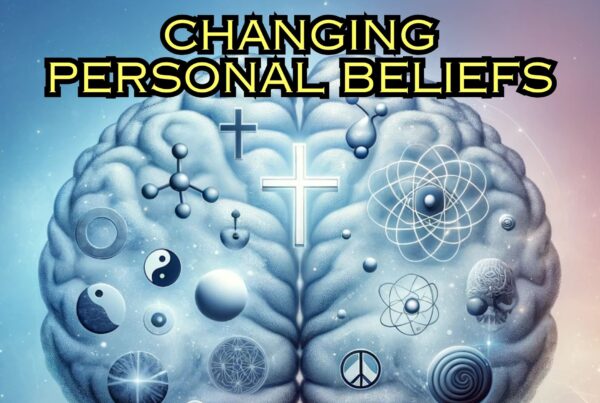What Understanding ‘Nobody’s Perfect’ Has Taught Me
We’ve all heard the saying ‘nobody’s perfect’. I think we can all agree that this is true. The funny thing is that so many people don’t really understand the power that is contained within these words and how a bit of reflection on them could have a more meaningful relationship with them.
How it is often used.
When we hear people say ‘nobody’s perfect’, it is generally used more as an excuse and often as a request to cut some slack.
“You didn’t do what I asked you to do last night.”
“I’m sorry. Nobody’s perfect!”
Or it can often be used as a consolation for things that are often something that we don’t like about ourselves and that we are often unable (or unwilling) to change.
“I do smoke but nobody’s perfect and everyone has at least one flaw…”
This is where it gets a bit murky. While it is true that we should often show self-compassion, we shouldn’t be using something like this to excuse behaviour that is unacceptable or that could be changed. Unfortunately, this is often where this saying is potentially abused.
You’re not perfect.
No one is perfect. Perfection is an impossibility. I say this to you in the most supportive of ways; you are not perfect.
Isn’t it funny that we all accept this to be true and yet we often spend so much time beating ourselves up because we aren’t perfect?
If we are to accept that no one is perfect, then we should also stop measuring ourselves against a benchmark of perfection.
This doesn’t mean that we shouldn’t ever stop striving to be a better version of ourselves. By all means, learn more, experience more, exercise more, discover more; do more and strive to be amazing. On the flipside of that, let’s not get caught up in the things that are outside of our control; we all have our limitations and we all have our weaknesses. The power comes in understanding what they are and working with them instead of pushing against them to bring forward the qualities and characters we have that are our strengths.
You’re not perfect, and that is ok. You are, however, capable of being remarkable, amazing and real. Perfection is over-rated.
The people you love are not perfect.
You know when your friend does something silly and you wonder what the hell caused that? Yep, because no one is perfect.
When we understand that people are often doing the best they can with what skills and resources they have, the more we can be capable of showing forgiveness or, at the least, an understanding.
This doesn’t excuse someone from offering a sincere apology or for trying to rectify a bad situation should it require it. If someone has done something that has hurt another person, they should be accountable for that.
Perhaps what we’re looking for is that there is a willingness to learn from the experience. We can offer that support to them by showing some empathy and understanding for the situation.
This is where shame can often come in; we need to be careful to not assume people are their behaviours. Someone might do something stupid, but that doesn’t mean they are stupid. We are all capable of doing silly things that end up being unfortunate situations and so we need to be sure we recognise when that happens, learn from the situation and do better next time.
That person you hate is not perfect.
Now, this is the one that people might struggle with; that person that did something really horrible to you isn’t perfect either – and I’m not asking you to forgive the person or to let them continue walking over you.
When someone does something horrible to you, we can often get caught up in our thoughts about it. How could they do that to us? Why did they do it? What made them do it?
Of course, a brief article like this is never going to cover every possible situation that could occur and each situation is going to be unique however we need to keep in mind that if we accept the notion that no one is perfect, we need to accept that of the people who do wrong by us too.
This isn’t about cutting them slack. It is, however, about understanding that this can often be a reflection of their own insecurities and in finding understanding, we can also find acceptance.
When I used the term ‘acceptance’, I don’t mean in a ‘forgive and forget’ kind of way. That isn’t what it is about. What it is about is knowing that what other people say and do is often outside of your control and, apart from approaching them and talking to them like an adult, often we need to just accept that other people are entitled to their thoughts and opinions even if they don’t agree with our own.
In choosing that acceptance, it helps us to reduce the struggle in those situations that we could normally get caught up in and allow our energy and focus to be channelled towards more meaningful and engaging experiences and relationships. It allows us to not get caught up in gossip and trivial debate, instead of allowing us to be more committed to the relationships that bring us joy, happiness, understanding, connection and support.
“I’m not perfect but I’m perfect for you.”
Grace Jones said it best when she sang ‘I’m not perfect but I’m perfect for you.”
Perfection is over-rated. In fact, aiming for absolute perfection can often be a negative, holding people back from being fully present in the moment because they’re too caught up in their own thoughts about how this isn’t being perfect. Instead, we can allow ourselves to just be in the moment, knowing that no-one is perfect, and often we can find something that is pretty damn close to perfection instead. Being fully present, being authentic and real with people and being able to have a rich, meaningful existence, warts and all.
When I think about it, it is highly possible that these two words are two of the most used words I have. There seems to be rarely a day where I don’t have to remind someone else or myself that nobody is perfect.
In those moments where I have done a mistake and my inner voice wants to beat me up, I need to remind myself ‘nobody is perfect’ and to speak to myself in a way I would speak to a friend who has made a silly mistake.
In those moments where something doesn’t work out the way we planned because of an oversight or a misunderstanding; these things happen so let’s not focus on ‘passing blame’.
In those moments where I could find myself getting upset and angry at someone because of something they’ve done that has upset me, relief can be found in reminding myself that it isn’t always about me and no one is perfect.
So I finish by offering this challenge to you; go out there and embrace your imperfection knowing that you can leave those concerns at the door and just immerse yourself in the moment with confidence, open-mindedness and compassion.
Book Your FREE Half Hour Consultation With Release Hypnosis NOW!
You may also like to read:
2017: A Year In Review
How to Achieve Your New Year’s Resolutions – Getting Ready for Jan 1st
Release Hypnosis’s Lawrence Akers on JOY FM
Embrace Your Confidence and Eliminate Toxic Shame Workshop








